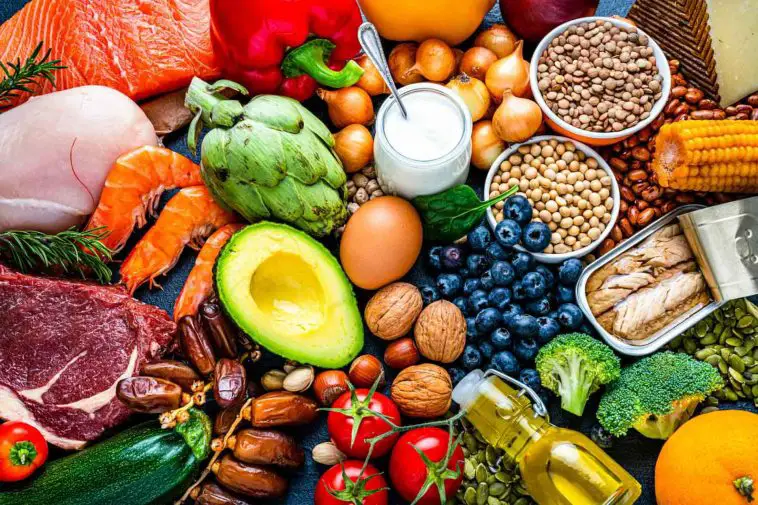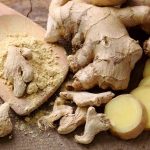The choices we make in our diet and lifestyle have profound impacts on our health and wellbeing. Every food we consume can contribute to our overall health, affecting everything from our energy levels to our mental health. Understanding the relationship between what we eat and how we feel is crucial for maintaining a balanced and healthy life.
The Power of Hydration: Water’s Role in Health
Hydration is more than just quenching thirst; it’s a vital part of maintaining good health. Drinking enough water daily is essential for bodily functions, including digestion, nutrient absorption, and regulating body temperature.
Nutritional Benefits of Dark Green Vegetables
Incorporating dark green vegetables like broccoli, peppers, brussel sprouts, kale, and spinach into your diet can offer numerous health benefits. These vegetables are rich in vitamins, minerals, and antioxidants. For more insights on healthy eating, visit Harvard Health Blog.
- Broccoli: High in vitamin C and dietary fiber.
- Spinach: Rich in iron and calcium.
- Kale: A great source of vitamin K.
Whole Grains for Daily Health
Whole grains like wheat, rye, and barley are fundamental for a healthy diet. They provide essential nutrients such as fiber, B vitamins, and minerals.
- Wheat: Good for digestion and heart health.
- Barley: Lowers cholesterol levels.
Beans and Lentils: Protein and Fiber Sources
Beans and lentils are excellent sources of plant-based protein and fiber. They are essential in a balanced diet, aiding in digestion, and can help in managing blood sugar levels, making them particularly beneficial for those with diabetes.
Fish: Omega-3 and Heart Health
Fish, especially those rich in Omega-3 fatty acids like salmon and tuna, are crucial for heart health. These fatty acids help reduce inflammation and lower the risk of heart disease, making fish a valuable addition to a healthy diet.
Berries: Antioxidants and Immune Support
Berries, including raspberries, blueberries, and strawberries, are rich in antioxidants. These compounds combat free radicals, reducing oxidative stress and supporting immune function. Regular consumption of berries can contribute to overall health and disease prevention.
The Importance of Winter Squash and Richly Pigmented Vegetables
Vegetables like butternut squash, sweet potato, and mango are not only delicious but also highly nutritious. Rich in vitamins A and C, these vegetables support immune function, eye health, and skin integrity, making them valuable additions to a healthy diet.
Soy and Flaxseed: Plant-Based Nutrient Powerhouses
Soy and flaxseed are excellent sources of plant-based nutrients. They provide protein, essential fatty acids, and fiber, contributing to heart health, hormonal balance, and overall wellbeing.
Organic Yogurt: Calcium and Gut Health
Organic yogurt is a fantastic source of calcium, crucial for bone health. It also contains probiotics, beneficial for gut health and digestion. Incorporating yogurt into your diet can support digestive wellbeing and bone density.
The Top 15 Healthful Foods: A Comprehensive Guide
A diverse range of foods contributes to a healthful diet. This includes nuts, rich in healthy fats and protein; lentils, a great source of plant-based protein and fiber; apples, packed with fiber and antioxidants; and eggs, offering high-quality protein and essential nutrients. These foods provide the foundation for a nutritious diet, supporting overall health and wellbeing For more information on heart-healthy living, check out the American Heart Association.
The Benefits of a Healthy Diet: Beyond Weight Loss
Exercise and Physical Activity: Complements to a Healthy Diet
Combining exercise with a healthy diet is essential for achieving optimal health. Regular physical activity, whether it’s brisk walking, cycling, or swimming, complements nutritional choices by enhancing cardiovascular health, strengthening muscles, and boosting mental health. Exercise helps in managing weight, reducing the risk of chronic diseases like diabetes and heart disease, and improving bone density. It also aids in digestion and can enhance the body’s ability to absorb nutrients from food. Together, a balanced diet and regular exercise form the cornerstone of a healthy lifestyle.
Mental Health and Diet: The Psychological Benefits
The connection between diet and mental health is profound. Nutrient-rich foods like omega-3 fatty acids, found in fish, and antioxidants, present in fruits and vegetables, can significantly affect mood and cognitive function. A diet high in whole foods and low in processed foods has been linked to a lower risk of depression and anxiety. Balanced nutrition ensures a steady supply of energy and essential nutrients to the brain, enhancing cognitive functions and emotional well-being. Thus, making mindful dietary choices can be a powerful tool in maintaining and improving mental health.
The Role of Sleep in a Healthy Lifestyle
Sleep is a critical component of a healthy lifestyle, and diet plays a significant role in sleep quality. Consuming a balanced diet rich in magnesium and calcium, found in leafy greens and dairy products, can enhance sleep quality. On the other hand, high sugar intake and excessive caffeine can disrupt sleep patterns. Eating a light, nutritious meal in the evening can promote restful sleep, highlighting the interplay between diet and sleep in overall health.
Healthy Eating Habits for Families
Establishing healthy eating habits within the family setting is crucial. It sets a foundation for children’s long-term health and relationship with food. Families should focus on incorporating a variety of foods, including fruits, vegetables, whole grains, and lean proteins, into their meals. Eating together as a family can encourage healthier choices, foster a positive relationship with food, and provide an opportunity for parents to model healthy eating behaviors to their children.
Practical Tips for Incorporating Healthy Foods into Daily Life
Incorporating nutritious foods into daily meals can be simple and practical:
- Start by adding a serving of vegetables or fruit to every meal.
- Choose whole grains over refined grains.
- Opt for lean protein sources like poultry, fish, beans, and nuts.
- Plan meals ahead to avoid last-minute unhealthy choices.
- Experiment with herbs and spices for flavor instead of relying on salt and sugar.
Conclusion
The choices we make in our diet and lifestyle significantly influence our health and wellbeing. A balanced diet, regular exercise, quality sleep, and healthy eating habits are not just individual components but interconnected elements that collectively contribute to a healthier, happier life.
FAQs
How much physical activity is recommended for a healthy lifestyle?
- Adults should aim for at least 150 minutes of moderate-intensity exercise per week.
Can diet affect mental health?
- Yes, a balanced diet rich in nutrients can positively impact mental health and mood.
What are some sleep-promoting foods?
- Foods rich in magnesium, calcium, and tryptophan, like dairy products and leafy greens, can promote better sleep.
How can families encourage healthy eating?
- Families can encourage healthy eating by preparing balanced meals together and setting regular meal times.
Are there simple ways to make meals healthier?
- Yes, incorporating more fruits and vegetables, choosing whole grains, and reducing processed food intake are simple ways to make meals healthier.






Comments
Loading…